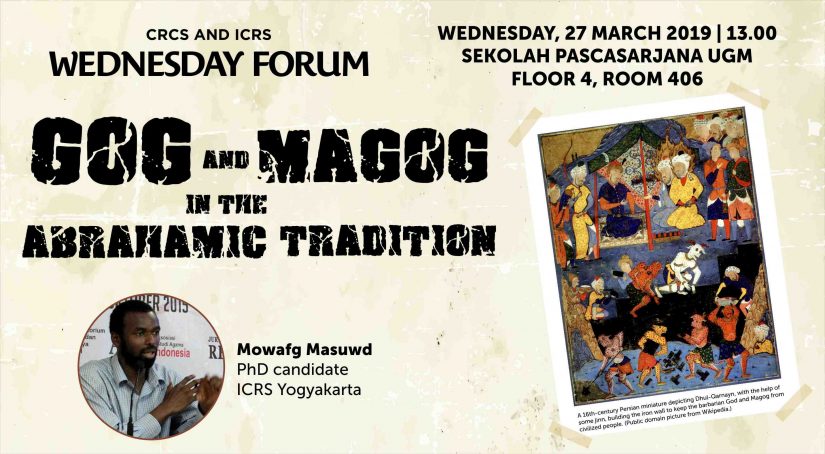
The Gog and Magog (Yajuj and Majuj) narrative is a very popular prophecy related to the End of Times. Judaism, Christianity and Islam share the roots of this apocalyptic text. The narrative has played a crucial role in times of peace and war, especially in the Middle East, as it has the ability to shape socio-political discourse. Ezekiel and Dhul-Qarnayn introduce the narrative in the Hebrew Bible and the Qur’an. The talk aims to give a broader understanding of and comparative perspectives about the prophetic speech in Ezekiel 38-39 and Sūrat al-Kahf 18: 83-101 using socio-rhetorical interpretation as a hermeneutical tool.
Mowafg Masuwd currently works at the Department of English, University of Zawia, Libya. He is a PhD candidate in interreligious studies at the Indonesian Consortium for Religious Studies (ICRS), Yogyakarta. His current research revolves around Qur’anic and Biblical eschatology, prophecies and apocalypticism.
Look at the full poster of this event here.

